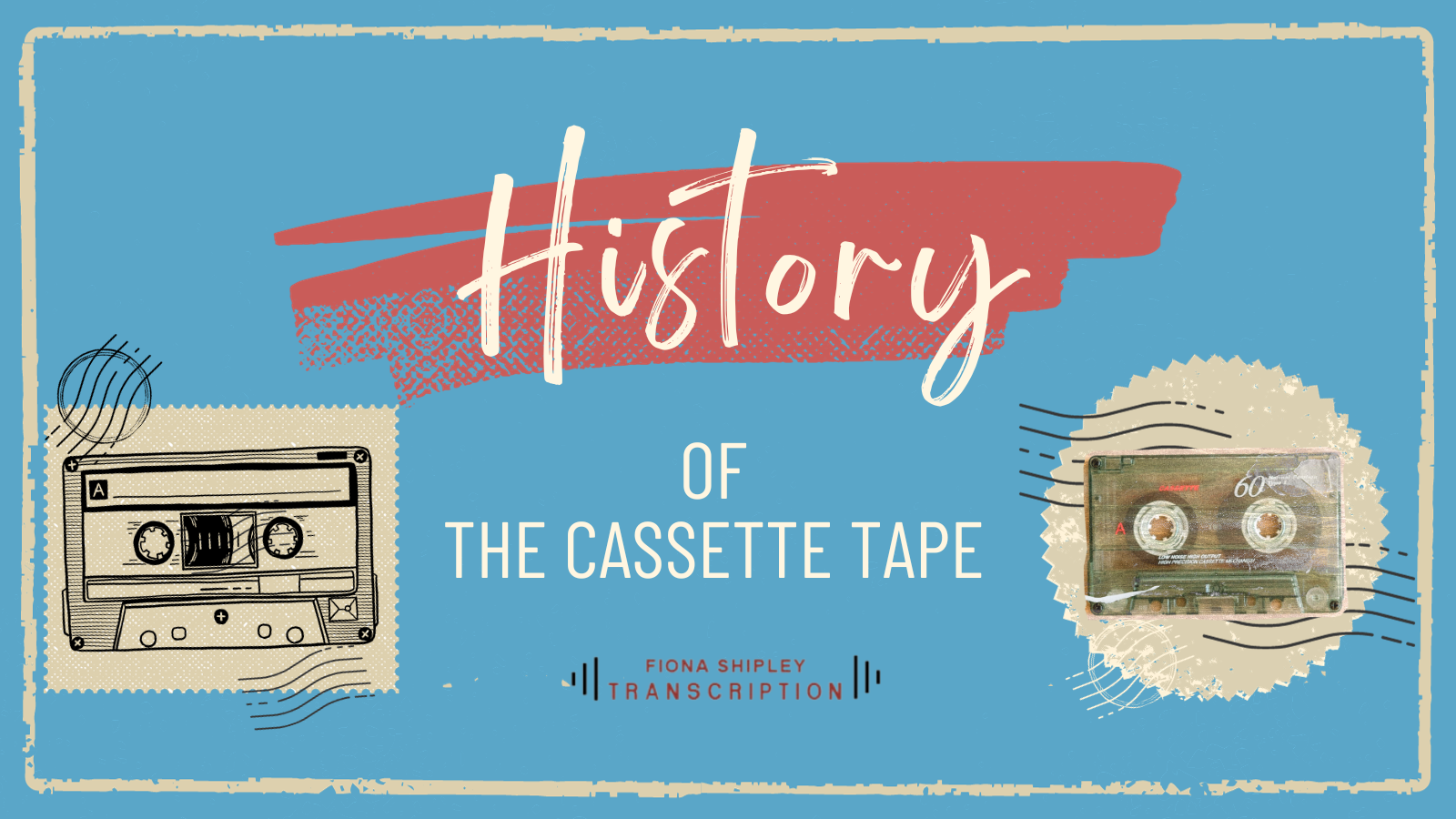Why on earth would we be thinking about the history of the cassette tape… they’re obsolete aren’t they?! Would you believe we actually received a recording for transcription on cassette tape just a few months ago!
Now let’s be clear: we don’t get these on a regular basis but they do come to us from time to time. For example, some police interviews are still recorded on tape and the one we recently received was from a Local Authority from an ‘Interview under Caution’ for their fraud department. It forms a vital part of a case because the recording & transcript of the interview can be used in court as evidence.
The history of the cassette tape is a fascinating journey through the development of audio recording technology. Here is a brief overview of its evolution:
Early Magnetic Recording: In the beginning there was early magnetic recording! This precursor to the cassette tape was first developed in the 1920s and comprised a wire recorder that transmitted to steel tape. These early tapes were typically large and used in professional settings, such as radio broadcasting and studio recording.
Compact Cassette Invention: In 1963 we see the birth of the modern cassette tape as we know it. Invented by Philips, a Dutch electronics company, and it was introduced to the market in 1963 but was still largely used in a professional capacity.
Consumer Adoption Initially, cassette tapes were used primarily for dictation purposes. However, their small size and convenience led to their adoption for music playback in the late 1960s – 1970s. Sony’s introduction of the first portable cassette player, the Sony TC-50, in 1968, helped popularise the format.
Standardisation: In 1964, Philips and Sony established the Compact Cassette standard, which included the cassette size, tape width, and playback speed. This standardisation allowed for compatibility between different manufacturers’ cassette players and tapes.
Audio Quality Improvements: Over time, advancements in tape formulation, such as high-bias and metal-formulated tapes, improved audio quality. Dolby noise reduction systems also enhanced the listening experience.
Home Recording and Mixtapes: Cassette tapes became popular for home recording and creating mixtapes. People could record their favourite songs from vinyl records, radio, or other cassettes onto blank tapes, which meant that people could create their own custom playlists.
Car Stereos: During the 1970s the cassette format became a staple in car audio systems, which boomed throughout the 1980s. This served to boost its popularity even more!
Competition from the CDs: The 1980s saw the next development in technology with the introduction of the CD. Because CDs offered superior audio quality and durability they posed a significant challenge to the cassette tape’s dominance.
The decline and obsolescence of the cassette tape
Competition from CDs gathered pace, and even though cassette tapes continued to be used throughout the 1990s, especially with portable music players like the Sony Walkman, the writing was on the wall for their decline. By the early 2000s, digital formats like MP3 and the rise of CD-Rs for burning custom CDs led to the decline of cassette tapes.
And now with streaming being the norm, tapes are mostly relegated to the history books. They remain a symbol of nostalgia for many (especially when looking back at those mix tapes or trying to record the top 40 from the radio!), and there is still a small but dedicated community of collectors, enthusiasts, and musicians who appreciate the format’s unique qualities.
For a time the cassette tape was a significant innovation in audio technology, providing a portable and accessible way to enjoy music and record audio. While it has largely been replaced by digital formats, it holds a special place in the history of music and recording technology.
Fiona Shipley transcription
And when it comes to transcription, it’s still a format that we work with! For legal requirements we produce full verbatim transcripts where all the ‘ums’ & ‘ers’ are included – although police interviews in particular now tend to be videotaped too so at least we can see when someone nods their head!
The bottom line is that whatever format works for our clients works for us. And we’ll be there to transcribe what they need -from digital to cassette – and everything in between!
To find out more about our services or to book in transcription service please call us on 01737 852 225 or email alex@fionashipley.com.

